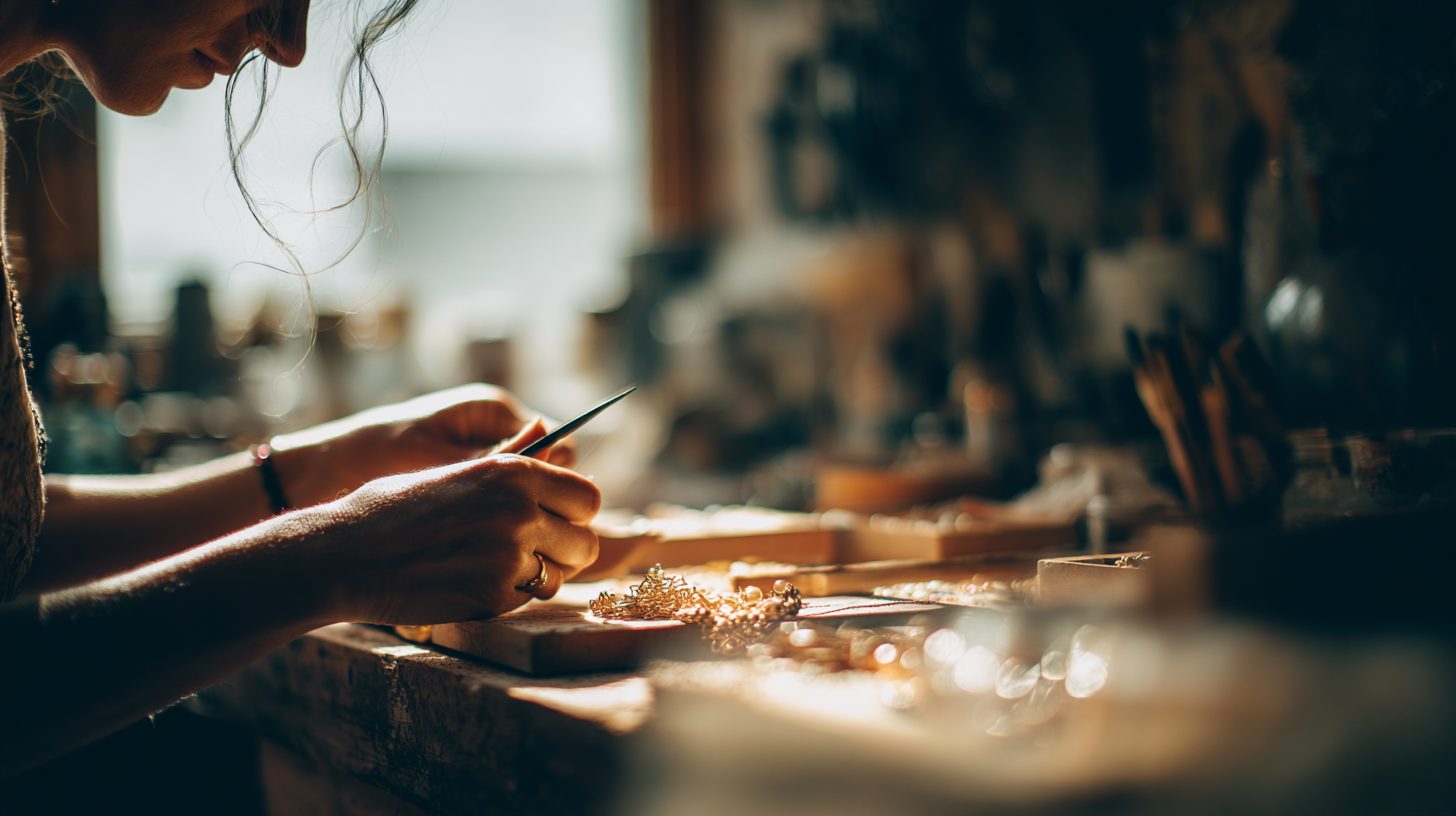Schools of Craft and Design in Florence: Where Tradition, Innovation & Local Makers Meet
At FlorenceFactory, we work only with local designers and artisans—but “local” doesn’t always mean born here. Often, they are people (many women) who have chosen Florence as their home, drawn by its artistic energy, its artisan culture, its living history. These are makers who learned their craft here, or who came here to study. And part of what makes Florence special is the many schools dedicated to art, jewelry, ceramics, leatherwork, fashion—institutions that attract students not just from Italy, but from across the globe.
Why so many schools? Because Florence is more than a beautiful city; it’s a working studio. The legacy of Renaissance workshops, guilds, master artisans, guild apprentices: it’s still alive in our streets, in our botteghe, in our ateliers. A student can learn the sculptural cast in a metalsmith’s studio, carve leather in a small lab near Santa Croce, or model forms in clay in Montelupo. Everything happens close by. The material sources are nearby; the sensibility is local; the demand (from tourists, connoisseurs, boutiques) sustains real craft. That makes the circle complete.
Why Florence & “Km‐Zero” Craft Education
Historical Depth: From the Opificio delle Pietre Dure (established in 1588 as Medici workshop) to the goldsmithing traditions of Ponte Vecchio; from Florence’s Accademia di Belle Arti (founded 1563) steeped in the drawing tradition of Cellini and Vasari. Florence has always been a center of making.
Living Workshops & Botteghe: The craft is not frozen in museums. Leather workshops, jewelry makers, ceramists still produce, sell, repair. The students often learn side‑by‑side with practicing artisans.
Schools for Foreign and Local Students: There is a strong draw for international students who want immersions in authentic technique. This cross‑pollination keeps tradition alive but also pushes innovation.
Supply Chains & Materials Near At Hand: Leather tanneries, kilns for ceramics, marble workshops, metal foundries—all relatively nearby. Fresco pigments, textiles, vegetable tanning—all available locally. That reduces cost, increases sustainability and keeps the craft alive in its local roots.
The Most Important Schools in Florence & Nearby
Jewelry
Florence has long been a capital for goldsmithing and fine jewelry. Alchimia Jewellery School trains contemporary designers with an emphasis on experimentation, while Metallo Nobile focuses on the classical cycle of metalsmithing and casting. Both attract international students who seek hands-on mastery close to Ponte Vecchio, the historic heart of Florence’s gold tradition.
Leatherwork
Leather is a Florentine icon. At the Scuola del Cuoio, students learn to design and handcraft bags and leather goods in the historic setting of Santa Croce. The Accademia Riaci also offers specialized courses in shoemaking and bag design, bringing together practical craft and design thinking.
Ceramics
Tuscan ceramics are famous worldwide, and Florence provides two strong learning centers. Scuola Meridiana in Certaldo offers courses in ceramics, drawing, and painting within a countryside villa setting, combining Tuscan tradition with an international teaching approach. The Scuola di Ceramica in Montelupo Fiorentino continues centuries of local tradition in Montelupo, a town synonymous with ceramic mastery.
Fashion
Florence’s role in international fashion is sustained by Polimoda, one of the most prestigious fashion schools worldwide. Its programs range from fashion design to business and accessory design, making it a key hub for connecting traditional craft with the global luxury industry.
Fine Arts & Restoration
The Accademia di Belle Arti di Firenze remains one of the most historic and influential schools, grounded in painting, sculpture, and drawing. Meanwhile, the Opificio delle Pietre Dure is internationally recognized for restoration and conservation, teaching highly specialized skills such as pietre dure inlay and fresco repair.
What Having These Schools Means (Conclusion)
Florence is not just a backdrop of Renaissance beauty—it is a living workshop city. The schools ensure that ancient techniques are not only preserved but constantly reinterpreted by new generations of makers from around the world. For FlorenceFactory, this means a steady dialogue with designers who carry strong skills, aesthetic sensibility, and respect for materials. It also means that resources and suppliers—leather, glazes, metals, pigments—remain close at hand, keeping production sustainable and authentic. The presence of these institutions enriches both the artisans who choose to settle here and the visitors who discover their work. To walk into our store is to enter this ecosystem: the city as classroom, workshop, and marketplace.
Visit Us
We’d love for you to come, whether you are browsing or buying:
Visit us at FlorenceFactory in Via dei Neri 6/8R: see makers, touch materials, understand the process.
If you’re in town, we can recommend an art or craft school to visit (open studio, workshop, or student exhibition).
Consider a small course or workshop: many of our designers started that way. You’ll see how craft, tradition and innovation combine in real objects.


